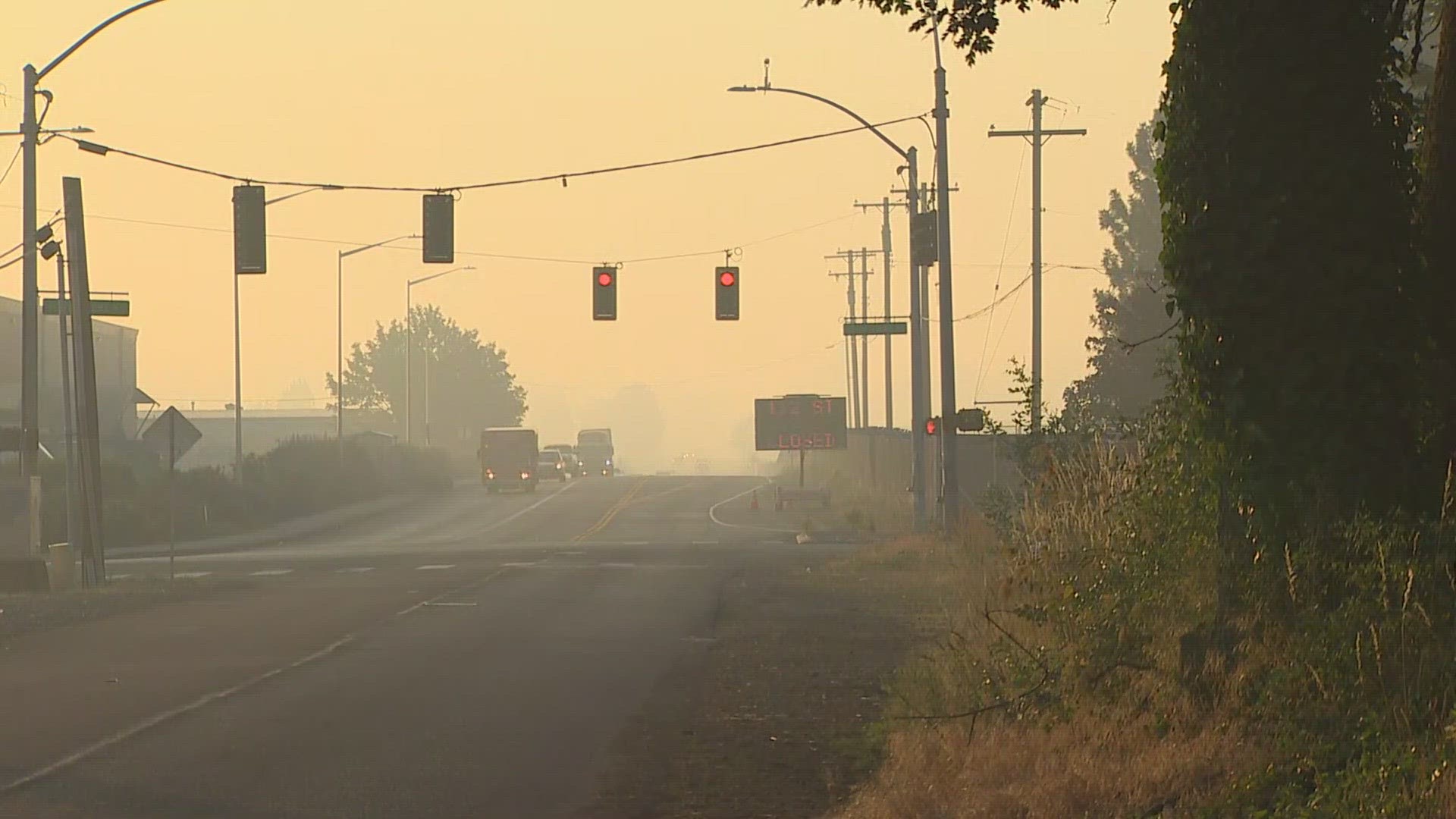SEATTLE — Unhealthy air quality resulting from wildfires can have adverse effects on people with health conditions like asthma and pulmonary disease, but what is less clear is how long-term exposure to smoky air impacts the health of the general public.
"Everything you see in the literature is calling for more research into this," said Dr. John Mignone, a cardiologist at Swedish Medical Center.
Mignone specializes in treating heart failure and said he notices when the Seattle area experiences hazy skies from wildfire smoke.
"We definitely do see higher levels of heart attacks at that time," Mignone said.
Unhealthy air does not only affect the lungs; it can be dangerous for the cardiovascular system. For people with existing pulmonary disease, significant exposure to smoky air can lead to heart failure and stroke.
"You have both chemical and fine-matter particles that get all the way down into the deepest areas of our lung and they can sit there, and cause oxidative stress," Mignone said.
Those, along with coughing and difficulty breathing are some of the short-term impacts for people with health issues. But what is less clear is what a persistent, seasonal onset of wildfire smoke does to healthy individuals in the long run.
Addison Houston, a climate adaptation strategist with Public Health -- Seattle & King County, said more research needs to be done.
"We don't have a complete picture of exactly how well wildfire smoke will impact our health but we are seeing a lot more evidence suggesting that people who consider themselves to be young and healthy, may actually be at higher risk than they previously perceived to be," Houston said.
Houston said the focus should be understanding the very small particles present in wildfire smoke that measure smaller than PM 2.5.
"Which is very fine particulate matter that has a diameter of about 20 times narrower than the width of a human hair," Houston said.
Wildfire smoke particles can include chemicals, carbon monoxide, nitrogen oxide, and other volatile, organic compounds.
"All these things can cause free radical damage to the DNA," Mignone said. "This is at least what we know about smoking."
Mignone said that could lead to worsened lung function, but agrees that more research needs to look at which particles from smoke could lead to long-term impacts.
"If there is a particular particulate matter that we could determine is the biggest offender, that's something, but there are very sparse amounts of data about that," Mignone said.
Houston advises people to avoid spending prolonged time outside when the air quality is bad and to wear a quality mask like an N95 or K95 if going outdoors is a must.
It is also recommended people install MERV filters in their homes to filter out any harmful particles.

